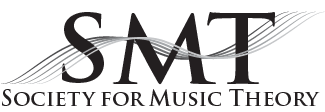Hello!
If you would like to participate in discussions, please sign in or register.
Categories
In this Discussion
- Carson Farley January 2015
Most Popular This Week
Due to changing needs and technologies, the SMT Executive Board has decided to retire SMT Discuss (effective Nov. 9, 2021). Posts will be preserved for archival purposes, but new posts and replies are no longer permitted.
Music Theory Today: The monster problem
I have just posted the final installment in the Music Theory Today thread on my blog Essays and Endnotes. The final chapter is "The Monster Problem." I've divided it into three parts:
The choice
In praise of monsters
Defining a music theory pluriverse
I invite comments - positive and negative - here and in the comments section of the blog. I also invite all of you to take part in a debate on music theory pedagogy today posted in the pedagogy category.
SMT Discuss Manager: smtdiscuss@societymusictheory.org


Comments
Hi Stephen,
I enjoyed reading "The Monster Problem" and I intend to comment soon. However, I need to reread the essay again as it is fairly complex and dense with philosophical ideas! I always enjoy your work and your blog! Your passion and interest in musical theory is so obvious - wonderful work!
Best, Carson
I think I would add a few elements to modern theory curriculum: integration of more technology since future musicians will be using computer applications and software, and as pointed out in Bob Kosovsky's new post - use of digital media is surely coming. There was a recent article in the September 2014 Scientific American about music technology replacing real opera orchestral musicians and Broadway show musicians and when the general audience was asked if it mattered if there were real musicians performing the response was no and there was no decline in sales or attendance even when performances were advertised as computer generated musical performances. The conclusion of the article was that musicians are not going to win this one, they cannot stop technology - so if you can't beat em' join em.' I would bet that most Freshmen music students already use technology, computers and music software anyway.
Technology has other advantages as well. You could ask a student to write an orchestral form or score and that would be entirely possible with new digital technology since the music could be edited, accessed and referenced anytime in the process of composing, but not realistic at all by conventional means - I mean for a student (or students) to write orchestral examples and actually have them performed and heard.
The other thing I think is missing from the modern theory curriculum is the study of acoustical sound principles and the general physics of sound [as related to musical sound]: overtone structure, timbre, temperament, etc. This is also an area that is greatly facilitated by technology since students can easily learn to manipulate sound parameters, ADSR envelopes, learn about amplitude, frequency modulations, sound shaping, the components of sound, frequency spectrums, and even basic recording principles, etc.
I imagine that with digital technology Webern's use of set theory played out in the structure of a composition could be illuminated, highlighted, in a very visual manner for an entire class, or other aspects of theoretical consideration could easily be identified and isolated in a number of different ways - and that is a powerful learning tool that is direct, interactive, and visual - seeing is believing.